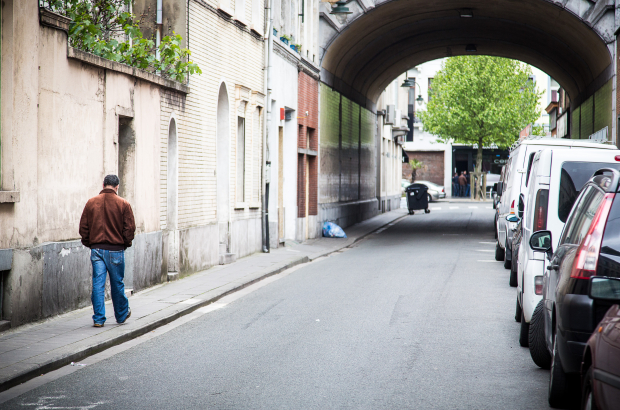- Daily & Weekly newsletters
- Buy & download The Bulletin
- Comment on our articles
Coronavirus and your mental health: We need to talk about loneliness
The English-speaking Community Help Service (CHS) 24/7 helpline has assisted callers in managing stress and finding respite from the pandemic since the beginning of the corona-crisis.
The psychological tolls of the crisis are many - depression, fear and uncertainty, just to name a few. Nevertheless, a particular topic stands out among our callers: loneliness.
The restrictions, limiting contact with very few people, have resulted in isolation for many, especially people who live alone as well as for foreigners far from home.
It is, however, noteworthy that one other group is particularly affected - that is the youth. Belgium’s second-wave restrictions have resulted in a reported 78% of young people between 18 and34 reporting loneliness.
But what is loneliness? Loneliness is when one feels alone and is sad about it. It sets in when social needs are not met, in the absence of close and meaningful relationships, and when one does not feel understood. Therefore, even if surrounded by friends and family, and although active on the social media, which constitutes a lifeline for many during the coronavirus crisis, one may still feel lonely.
Loneliness is a feeling with a strong physical component. Among other physical symptoms, it increases physical tension and stress hormones, and hence makes people more susceptible to disease. Loneliness can also be understood as a biological warning signal. It is a signal that should encourage us to connect with other people - a connection that is essential for survival.
In other words, human beings have a need to connect. We crave social connections with people whom we can identify with, learn from and lean on. The pandemic has forced us to do the opposite. Therefore, loneliness has become a long-term condition with negative effects on mental health.
While life may have been challenging prior to the corona crisis, the combination of uncertainty, social distancing and remote working/studying has taken an additional toll on our wellbeing in general and have caused a "collective trauma". But young people suffer especially, as they are missing out on opportunities important for their social development.
There are no quick fixes, but we can make the situation a little more tolerable. Good and safe communities are the best remedy against loneliness. People thrive when they feel connected to others. Concerning the current social restrictions, social media is part of the cure. It makes it possible to keep in touch, and to keep the physical isolation from becoming social isolation, but more is needed.
To combat loneliness, we need to communicate. We need to talk about what hurts, and when we speak up, we discover that we are not alone. Others feel the same – and that can be healing.
Perhaps the silver linings of the pandemic are more honesty and empathy around mental health issues. The CHS 24/7 helpline hopes that talking about mental health will be the "new normal", and that Covid-19 will help destigmatise mental health issues, and lead to more honesty and courage to show vulnerability and emotions.
We mustn’t be scared of loneliness. It is a signal on our emotional dashboard along with many others, such as feeling scared or worried, but we do need to act on it, to discuss it and to pay attention when it is brought up. If we do just that, it would constitute a positive effect of the pandemic that we may bring with us into the post-Covid era. If acted upon, loneliness can be substantially reduced. But we need to address it. Together.
- Call the CHS helpline on 02 648 40 14. Hear more from Lise Skinnebach on The Bulletin radio this Sunday (14 February) at 12.15 and on Monday at 9.00 and 17.00.



















